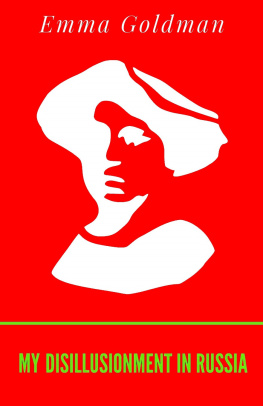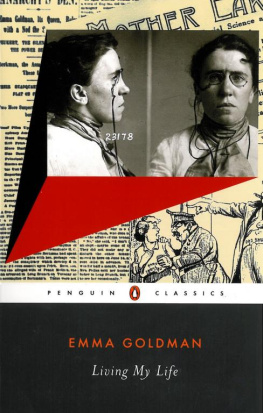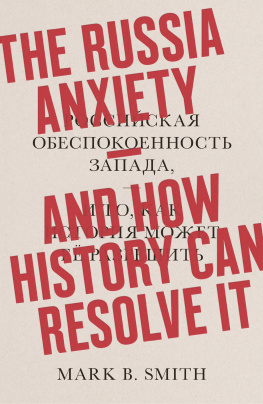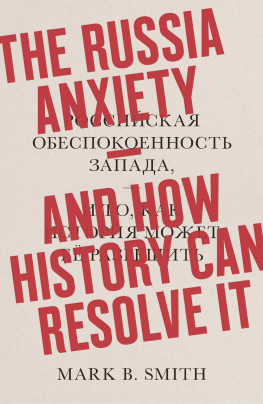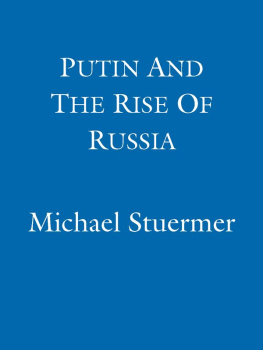Preface To First Volume of American Edition
The decision to record my experiences, observations, and reactions during my stay in Russia I had made long before I thought of leaving that country. In fact, that was my main reason for departing from that tragically heroic land.
The strongest of us are loath to give up a long-cherished dream. I had come to Russia possessed by the hope that I should find a new-born country, with its people wholly consecrated to the great, though very difficult, task of revolutionary reconstruction. And I had fervently hoped that I might become an active part of the inspiring work.
I found reality in Russia grotesque, totally unlike the great ideal that had borne me upon the crest of high hope to the land of promise. It required fifteen long months before I could get my bearings. Each day, each week, each month added new links to the fatal chain that pulled down my cherished edifice. I fought desperately against the disillusionment. For a long time I strove against the still voice within me which urged me to face the overpowering facts. I would not and could not give up.
Then came Kronstadt. It was the final wrench. It completed the terrible realization that the Russian Revolution was no more.
I saw before me the Bolshevik State, formidable, crushing every constructive revolutionary effort, suppressing, debasing, and disintegrating everything. Unable and unwilling to become a cog in that sinister machine, and aware that I could be of no practical use to Russia and her people, I decided to leave the country. Once out of it, I would relate honestly, frankly, and as objectively as humanly possible to me the story of my two years stay in Russia.
I left in December, 1921. I could have written then, fresh under the influence of the ghastly experience. But I waited four months before I could bring myself to write a series of articles. I delayed another four months before beginning the present volume.
I do not pretend to write a history. Removed by fifty or a hundred years from the events he is describing, the historian may seem to be objective. But real history is not a compilation of mere data. It is valueless without the human element which the historian necessarily gets from the writings of the contemporaries of the events in question. It is the personal reactions of the participants and observers which lend vitality to all history and make it vivid and alive. Thus, numerous histories have been written of the French Revolution; yet there are only a very few that stand out true and convincing, illuminative in the degree in which the historian has felt his subject through the medium of human documents left by the contemporaries of the period.
I myself and I believe, most students of history have felt and visualized the Great French Revolution much more vitally from the letters and diaries of contemporaries, such as Mme. Roland, Mirabeau, and other eye witnesses, than from the so-called objective historians. By a strange coincidence a volume of letters written during the French Revolution and compiled by the able German anarchist publicist, Gustav Landauer, came into my hands during the most critical period of my Russian experience. I was actually reading them while hearing the Bolshevik artillery begin the bombardment of the Kronstadt rebels. Those letters gave me a most vivid insight into the events of the French Revolution. As never before they brought home to me the realization that the Bolshevik rgime in Russia was, on the whole, a significant replica of what had happened in France more than a century before.
Great interpreters of the French Revolution, like Thomas Carlyle and Peter Kropotkin, drew their understanding and inspiration from the human records of the period. Similarly will the future historians of the Great Russian Revolution if they are to write real history and not a mere compilation of facts draw from the impressions and reactions of those who have lived through the Russian Revolution, who have shared the misery and travail of the people, and who actually participated in or witnessed the tragic panorama in its daily unfoldment.
While in Russia I had no clear idea how much had already been written on the subject of the Russian Revolution. But the few books which reached me occasionally impressed me as most inadequate. They were written by people with no first-hand knowledge of the situation and were sadly superficial. Some of the writers had spent from two weeks to two months in Russia, did not know the language of the country, and in most instances were chaperoned by official guides and interpreters. I do not refer here to the writers who, in and out of Russia, play the role of Bolshevik court functionaries. They are a class apart. With them I deal in the chapter on the Travelling Salesmen of the Revolution. Here I have in mind the sincere friends of the Russian Revolution. The work of most of them has resulted in incalculable confusion and mischief. They have helped to perpetuate the myth that the Bolsheviki and the Revolution are synonymous. Yet nothing is further from the truth.
The actual Russian Revolution took place in the summer months of 1917. During that period the peasants possessed themselves of the land, the workers of the factories, thus demonstrating that they knew well the meaning of social revolution. The October change was the finishing touch to the work begun six months previously. In the great uprising the Bolsheviki assumed the voice of the people. They clothed themselves with the agrarian programme of the Social Revolutionists and the industrial tactics of the Anarchists. But after the high tide of revolutionary enthusiasm had carried them into power, the Bolsheviki discarded their false plumes. It was then that began the spiritual separation between the Bolsheviki and the Russian Revolution. With each succeeding day the gap grew wider, their interests more conflicting. To-day it is no exaggeration to state that the Bolsheviki stand as the arch enemies of the Russian Revolution.
Superstitions die hard. In the case of this modern superstition the process is doubly hard because various factors have combined to administer artificial respiration. International intervention, the blockade, and the very efficient world propaganda of the Communist Party have kept the Bolshevik myth alive. Even the terrible famine is being exploited to that end.
How powerful a hold that superstition wields I realize from my own experience. I had always known that the Bolsheviki are Marxists. For thirty years I fought the Marxian theory as a cold, mechanistic, enslaving formula. In pamphlets, lectures and debates I argued against it. I was therefore not unaware of what might be expected from the Bolsheviki. But the Allied attack upon them made them the symbol of the Russian Revolution, and brought me to their defence.
From November, 1917, until February, 1918, while out on bail for my attitude against the war, I toured America in defence of the Bolsheviki. I published a pamphlet in elucidation of the Russian Revolution and in justification of the Bolsheviki. I defended them as embodying in practice the spirit of the revolution, in spite of their theoretic Marxism. My attitude toward them at that time is characterized in the following passages from my pamphlet, The Truth About the Bolsheviki:
The Russian Revolution is a miracle in more than one respect. Among other extraordinary paradoxes it presents the phenomenon of the Marxian Social Democrats, Lenin and Trotsky, adopting Anarchist revolutionary tactics, while the Anarchists Kropotkin, Tcherkessov, Tschaikovsky are denying these tactics and falling into Marxian reasoning, which they had all their lives repudiated as German metaphysics.
The Bolsheviki of 1903, though revolutionists, adhered to the Marxian doctrine concerning the industrialization of Russia and the historic mission of the bourgeoisie as a necessary evolutionary process before the Russian masses could come into their own. The Bolsheviki of 1917 no longer believe in the predestined function of the bourgeoisie. They have been swept forward on the waves of Bakunin; namely, that once the masses become conscious of their economic power, they make their own history and need not be bound by traditions and processes of a dead past which, like secret treaties, are made at a round table and are not dictated by life itself.

